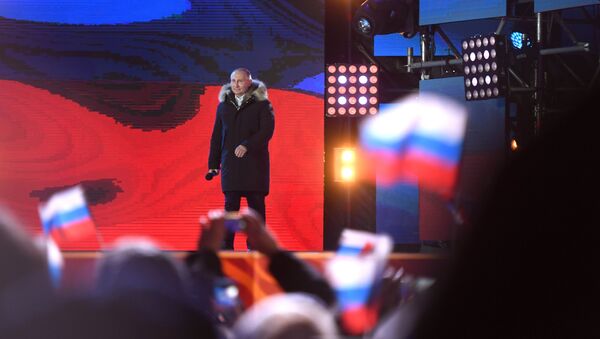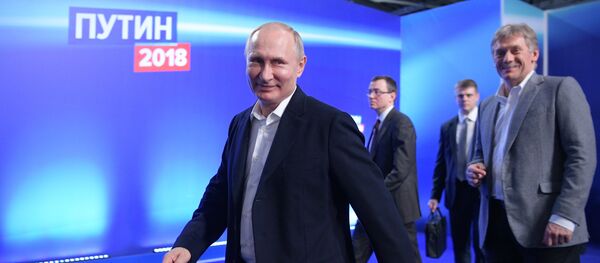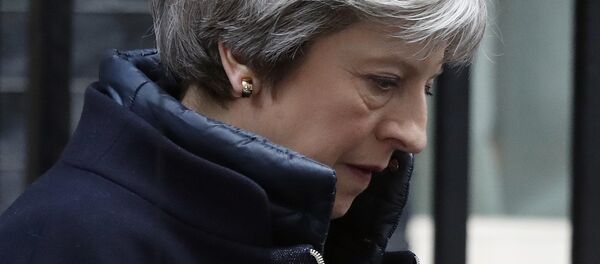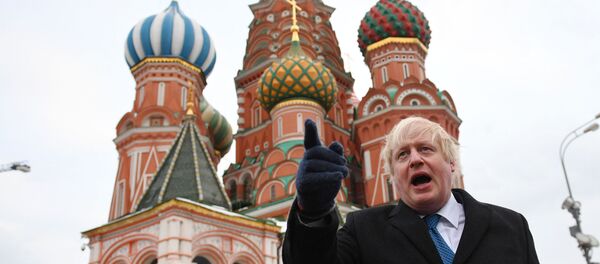Putin's popularity is genuine and authentic, regardless of the anticipated and entirely predictable attempt to pour scorn on the election and its result by those for whom Russia can only be conceived of as a vanquished enemy or a deadly enemy that needs to be vanquished. No democratic system is perfect, neither Russia's, the UK's, or that which underpins the United States — indeed, perhaps especially that which underpins the United States.
Whereas in 2012 he took 63.6% of the vote on a 65.25% turnout, this time round, Putin garnered 76.68% of the vote on turnout of over 67%.
No matter, commentators in the UK, consumed with anti-Russia fever over the Skripal case, have without any hint of irony made great play of the fact that the result means that Vladimir Putin is now the longest serving Russian head of state since Joseph Stalin.
In Russia — as in the US, as in France — the country's elected president serves a dual role, both as head of state and as the head of the government. In the UK the head of state is unelected while the head of government, the prime minister, is elected. However the head of state in all cases performs constitutional duties and is accorded various privileges that are consonant with the role. Thus the fact that in the UK the head of state is an unelected monarch is not just undemocratic it can reasonably be described as anti-democratic.
And yet, be that as it may, given how long the monarchy in the UK has held sway, it is clearly a system that works for Britain and its people. So why, therefore, when it comes to Russia and its democratic system, open season has been declared when it comes to heaping criticism and scorn upon it?
The answer to the above question, all obfuscation aside, is that these people have never forgiven deal Russia for recovering from the vast free market experiment that was visited on the country during the 1990s, nor the fact the man largely responsible for that recovery, Vladimir Putin, remains genuinely popular as a result. Russia's social fabric was ripped to shreds prior to Putin's arrival in the Kremlin, it is worth recalling, the masses of its people subjected to inordinate economic pain, while a small clutch of oligarchs and their henchmen had set about plundering the country's state assets and wealth.
So, yes, Vladimir Putin is rightly credited with arresting this economic and social catastrophe. In doing so he was inarguably aided by buoyant energy prices throughout the decade known as the noughties. However, and far more importantly, his success in restoring the primacy of the state over the unfettered free market capitalist forces that were feeding on the country's wealth like vultures on a dying carcass was crucial.
Then, too, there is the question of foreign policy, which has likewise been a crucial factor in Russia's improved fortunes throughout Putin's tenure. For just as he faced down oligarchs in Russia, Russia's president has faced down Washington and its allies in the West when it comes to the eastward expansion of NATO, beating back attempts to use Georgia 2008 and Ukraine in 2014 as cat's paws in this regard.
READ MORE: West's Problem With Putin is That He's Challenged Unipolar World Order — Analyst
Furthermore, with Russia's military intervention in Syria in partnership with the country's government, starting in 2015, Putin has pushed back against the succession of US-led regime change wars, under various guises, that have ensued since the 1990s, in process of which a coach and horses has been driven through international law and the UN Charter.
Finally, returning to the Skripal case, the regressive consciousness of a British ruling class that is yet to transcend the country's colonial history has been exposed since the moment Mr Skripal and his daughter were poisoned on March 4. Threats, ultimatums, and demands have ensued, along with the most retrograde and base Russophobic tropes.
It has reflected poorly on those responsible, especially those in positions of responsibility and leadership — people such as Britain's Foreign Secretary Boris Johnson, for example.
Threats, ultimatums, and demands are the language of yesterday when it comes to international affairs, while diplomacy, negotiation, and mutual respect are the language of today.
The sooner the likes of Boris Johnson abandon the old language for the new one the better for all.
The views and opinions expressed by John Wight are those of the speaker and do not necessarily reflect those of Sputnik.





